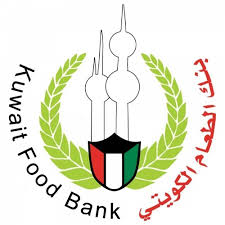
By Faten Omar
KUWAIT: Life in Kuwait has largely been put on hold, hitting businesses and employees badly. Many of them have lost their jobs and daily-wage workers are suffering, while others are struggling for food due to the coronavirus pandemic. More than half a million citizens and residents living in Jleeb Al-Shuyoukh and Mahboula are under a lockdown as a precautionary measure to face COVID-19.
Many charities are distributing food to people in these areas. General Manager of Kuwait Food Bank Salem Al-Hamar told Kuwait Times that KFB is distributing food to needy families and individuals. "Since the coronavirus outbreak, we are helping needy people. We are disturbing 18,900 daily meals to individuals and more to families," he said.
Hamar explained that during this period, many have lost their jobs and need to provide food for their families, noting that the number of distributions has increased during the coronavirus pandemic, as Kuwait Food Bank used to distribute only 2,000 meals daily to individuals. "Most of the distributions are in Jleeb Al-Shuyoukh, Farwaniya, Khaitan and some other areas," he added.
Meanwhile, Hamar invited people affected by the coronavirus crisis to communicate with the food bank via its website https://www.kuwaitfoodbank.org to be provided with needed food aid. The bank's database is constantly updated to add names of poor families with food delivered by professional volunteer teams.
In March, Kuwait Food Bank launched a project for more than 60,000 beneficiaries in various areas of Kuwait, as their number increased compared to last year. The project aims to distribute food aid, nutritional needs and necessary supplies to widows, divorced women, the elderly, the sick, people with special needs, orphans and poor people throughout the year in cooperation with the Awqaf Public Foundation.
Likewise, Kuwait's Ministry of Social Affairs and Labor launched a central online database for disadvantaged families to receive aid, according to KUNA. The database allows 52 charitable organizations to coordinate their efforts to ensure there are no overlaps in aid supply and all families in need receive help.










